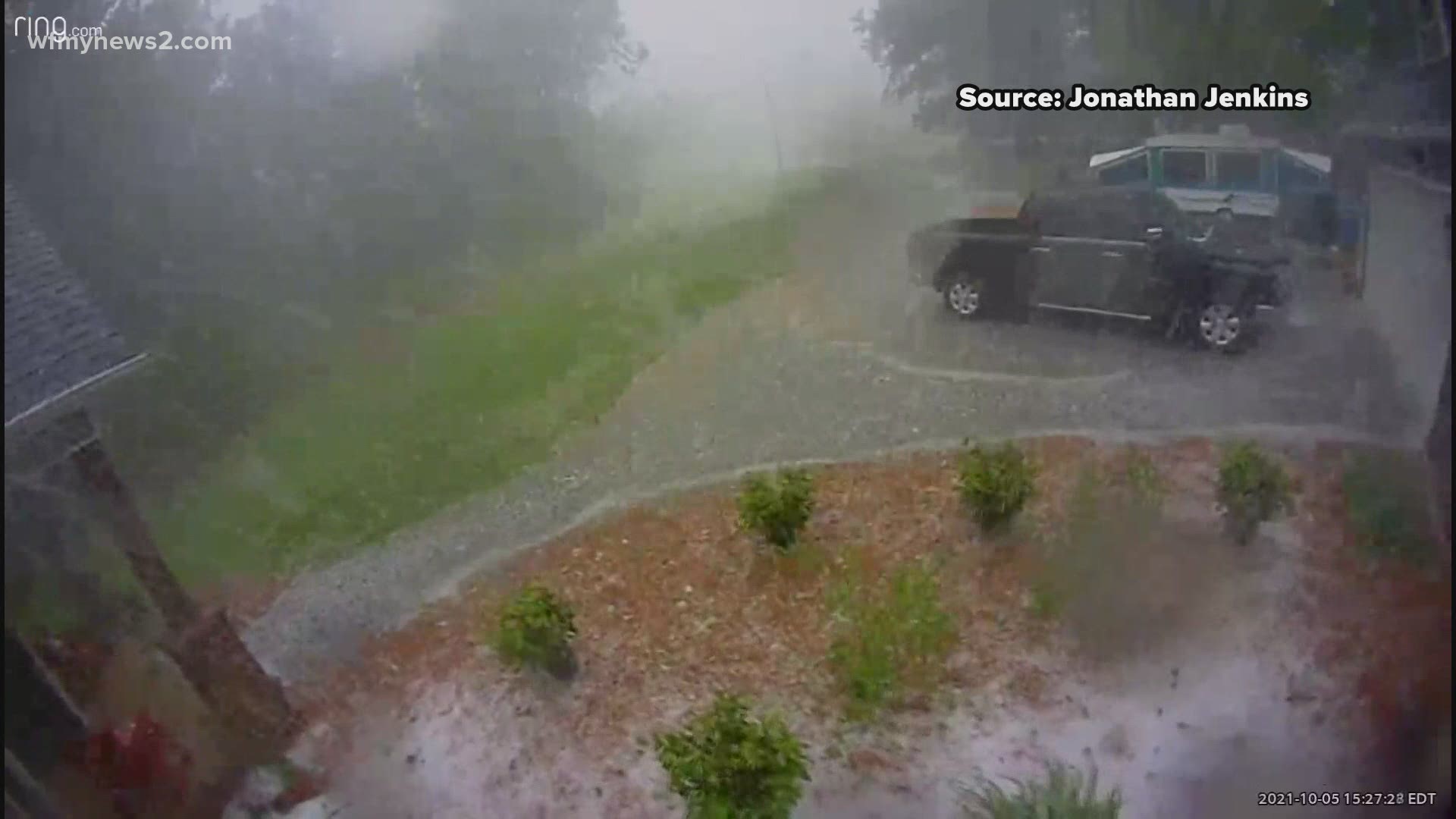GREENSBORO, N.C. — I know they say seeing is believing, but the sound of the hail that came down Monday was something to hear! When you see the video, you can’t help but notice the vehicles in the distance getting hammered by that hail.
If it wasn't one kind of damage, it was another with trees coming down as well. You might think since your car was parked at home, your homeowner's insurance pays for the damage, but no. It’s your auto coverage.
“Comprehensive coverage is really for acts of nature things like hail damage hitting an animal, lightning, flood, a limb falling on it,” said Christopher Cook with Alliance Insurance Services.
Just to be clear, any kind of damage not related to an accident falls under comprehensive coverage. This kind of coverage replaces or repairs your car if it is stolen or when it's a non-accident like a fire, vandalism, hail or a tree limb.
Here's the rub, you're not required to have comprehensive coverage on your car. If you don't have comprehensive coverage, then the repair costs come out of your pocket.
Should you be concerned about making a claim & insurance dropping you?
"It's very rare we're going to see a home or auto insurance company drop a customer over one claim, that is less than 1% that I see that happening," Cook said.
Should I be concerned about my roof?
Getting an estimate from a roofer is free. They can tell you if your roof is ok, simply just old, or if there is damage that you can make an insurance claim.
When you call your insurance company, they're going to ask you when the damage happened. Was it a storm a month ago or just recently?
Your insurance company sends out an adjuster, they inspect your roof and write up a report on the damage.
I just went through this. In my case, the first adjustor didn't think there was as much damage as the roofer. What do you do in that situation? I had to take my own 2WTK advice and I asked for a second adjuster to look at it. Don’t feel bad about doing that. It's not being a problem consumer, it's being a wise consumer. The worst that happens is, both adjusters come to the same conclusion.
Here's the big lesson I learned because I was trying to get the roofer and the adjuster on the same page, the same appointments, etc.
The insurance company deals with you, you are their customer. They don't deal with the roofer. They don't send the roofer a check, they don't sign a contract with the roofer-- you do.
ASK QUESTIONS
None of us come out of the womb knowing everything about getting a roof or making a claim. I am constantly asking questions and repeating back the answers so I know we are all on the same page. I often ask the question-- What am I not asking about that I should be aware of?
HIRING A CONTRACTOR
1. Don't go with the first person you meet for the job. Get at least three offers to see the differences in prices. Remember, the cheapest isn't always the best.
2. Get a price and the time frame of the job from start to finish, estimated price, and later a firm price. Don't forget references. To be perfectly clear, get all of this in writing!
3. Be sure the person you hire is licensed and insured, that's really important. And even if they're referred by someone, Google them and check with the Better Business Bureau to see if they have done business under a different name. If so, that could be a red flag. A Google search might also turn up a criminal record. That may not disqualify a contractor but it's at least good to know.
4. If you are going to use an app-based service to refer someone to you, don't assume they have been checked out.
5. When you check the insurance, see the paperwork, don't take their word for it.
PAYMENT
The biggest take-a-way is to never pay all the costs upfront. You should pay 1/3 before the project begins, 1/3 at the start of the project, and the last 1/3 at the end when work is finished.
At times, there are discounts for paying in cash. Make sure you get written invoices for each payment. The rule of thumb is to use a credit card so in cash you need to dispute or withhold payment for some reason, you can.

